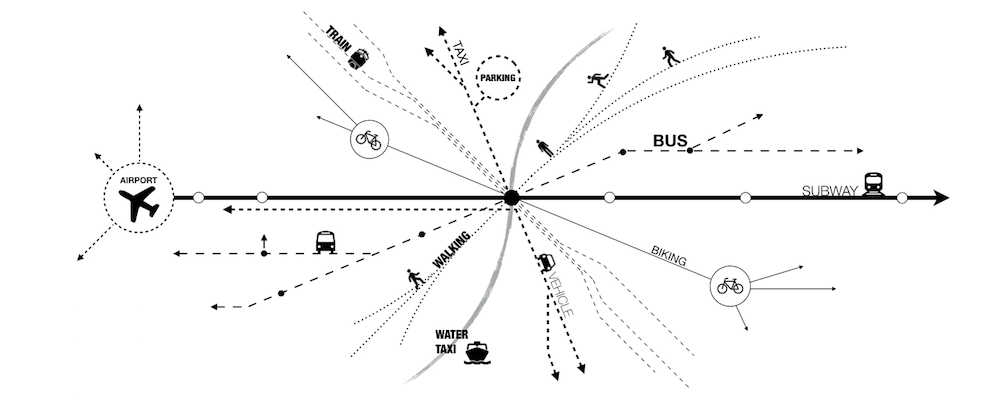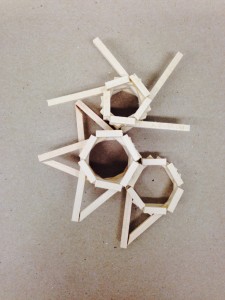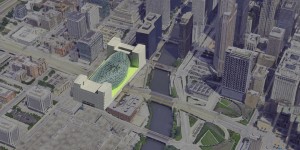The rapid change in the technologies and cultures of mobility has negatively affected the transportation system generating public spaces that are expediently designed, outdated, neglected and underutilized. These spaces are problematic ruptures in the physical and social fabric of the city and create the need/demand? for progressive, expanded transit experiences. Investigating a new approach to mobility through public space, this thesis rethinks transit architecture as a necessary social and ecological network that unifies and serves the urban community with unique and contemporary economic elements fluidly linked with all transportation modes. Studying the impact of shared spaces in new combinations with movement spaces, reinterprets community transit. The Compact Transit Hub, as a prototype, changes human behavior, interaction, and urban identity. Movement of people, vehicles and light, wind and water living systems expose the beauty and elegance of flow.








